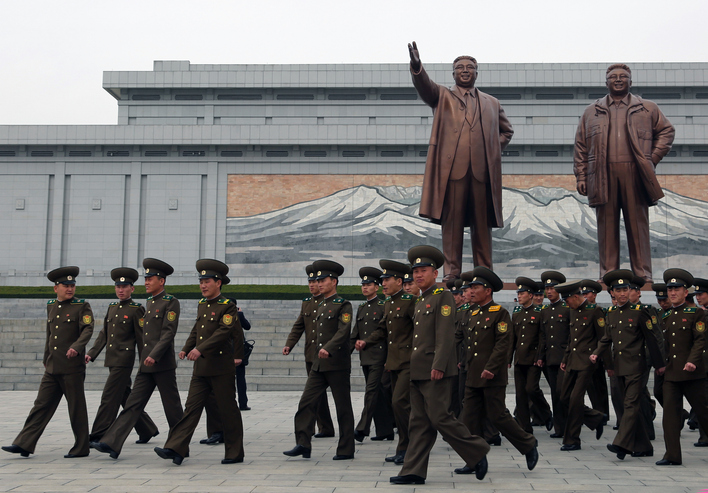Officials in Ukraine and South Korea have accused North Korea of dispatching troops, estimated to number in the thousands perhaps, to aid Russia in the war in Ukraine.
Both Moscow and Pyongyang have denied the claims and U.S. officials have said they are still investigating the reports.
Here is what we know so far:
WHAT ARE THE REPORTS?
Ukraine’s President Volodymyr Zelenskiy accused North Korea on Thursday of deploying officers alongside Russia and preparing to send 10,000 soldiers to help Moscow’s war effort.
On Friday, South Korea’s National Intelligence Service (NIS) said the North had shipped 1,500 special forces troops to Russia’s Far East for training and acclimatising at military bases there, probably to be deployed for combat in the war.
The South also said it had used AI facial recognition technology to identify a delegation of dozens of North Korean officers visiting frontline areas in Ukraine, to give guidance on North Korea-made KN-23 ballistic missiles fired at targets there.
The delegation included a key figure in the North’s missile development, identified by analysts at Seoul-based NK PRO as Ri Song Jin, glimpsed in photographs last year while accompanying leader Kim Jong Un to factories that turn out missiles.
Vessels of Russia’s Pacific Fleet were detected moving the North Korean special forces troops to Vladivostok from Oct. 8 to 13 and are expected to resume that effort soon, the NIS said.
The troops have been supplied with Russian military uniforms, weapons and false identification documents ahead of being deployed for combat, it said.
WHY WOULD NORTH KOREA HELP RUSSIA?
Russian President Vladimir Putin has said a treaty he signed with Kim Jong Un during a visit to Pyongyang in June included a mutual assistance clause for each side to help the other repel external aggression.
Asked if this meant that Russia could be drawn into backing Pyongyang in a conflict on the Korean peninsula or that North Korea could side with Russia in a conflict with the West, Kremlin spokesman Dmitry Peskov said the pact “implies truly strategic deep cooperation in all areas, including security”.
Analysts say North Korea could benefit from providing weapons and troops by gaining experience and insight from operating on a battlefield.
Pyongyang, heavily sanctioned for its nuclear weapons programme, also appears to be gaining major imports of oil and other products from Russia, according to foreign intelligence agencies and commercial satellite imagery examined by analysts.
A report by a think tank affiliated with South Korea’s NIS estimated that the cash-strapped North earned about $540 million last year from arms sales to Russia.
WHAT HAS THE REACTION BEEN?
On Monday, South Korea said it had protested the deployment to Russia’s ambassador.
Russia’s Peskov dismissed reports of North Korean troops in Ukraine as “fake news”.
On Saturday U.S. Defense Secretary Loyd Austin said he could not confirm reports that North Korea had sent troops to Russia ahead of what could be a deployment to the war in Ukraine, but added that such a move would be concerning, if true.
NATO chief Mark Rutte also said last week there was no evidence of Pyongyang’s presence at this stage.
If the reports are true, it “shows a level of desperation” in Russia, British Prime Minister Keir Starmer said on Friday.
WHAT WOULD BE THE IMPACT OF NORTH KOREAN TROOPS?
Russia has fired dozens of North Korea-made ballistic missiles and has received large numbers of artillery shells and anti-tank rockets, say South Korea, Ukraine, the United States and independent researchers.
Military analysts say there are questions on how Russia would incorporate North Korean troops on the ground, and that, like the weapons, an infusion of troops would be unlikely to be a game changer but could help prolong the conflict.
(Reuters)




















